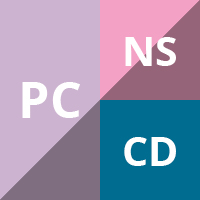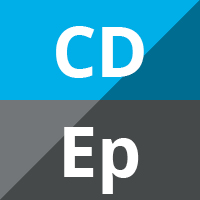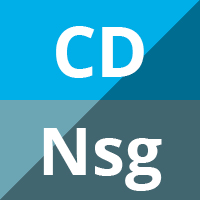
Immediate versus delayed treatment for recently symptomatic carotid artery stenosis
Abstract Background The timing of surgery for recently symptomatic carotid artery stenosis remains controversial. Early cerebral revascularization may prevent a disabling or fatal ischemic recurrence, but it may also increase the risk of hemorrhagic transformation, or of dislodging a thrombus. This review examined the randomized controlled evidence that addressed whether the increased risk of recurrent […]

Admission avoidance hospital at home
Abstract Background Admission avoidance hospital at home provides active treatment by healthcare professionals in the patient’s home for a condition that otherwise would require acute hospital inpatient care, and always for a limited time period. This is the third update of the original review. Objectives To determine the effectiveness and cost of managing patients with […]

Cognitive rehabilitation for memory deficits after stroke
Abstract Background Memory problems are a common cognitive complaint following stroke and can potentially affect ability to complete functional activities. Cognitive rehabilitation programmes either attempt to retrain lost or poor memory functions, or teach patients strategies to cope with them. Some studies have reported positive results of cognitive rehabilitation for memory problems, but the results […]

Acupuncture for stroke rehabilitation
Abstract Background Stroke is the second most common cause of death in the world and in China it has now become the main cause of death. It is also a main cause of adult disability and dependency. Acupuncture for stroke has been used in China for hundreds of years and is increasingly practiced in some […]

Enzyme replacement therapy for Anderson-Fabry disease
Abstract Background Anderson-Fabry disease is an X-linked defect of glycosphingolipid metabolism. Progressive renal insufficiency is a major source of morbidity, additional complications result from cardio- and cerebro-vascular involvement. Survival is reduced among affected males and symptomatic female carriers. This is an update of a Cochrane review first published in 2010, and previously updated in 2013. […]

Self-monitoring and self-management of oral anticoagulation
Abstract Background The introduction of point-of-care devices for the management of patients on oral anticoagulation allows self-testing by the patient at home. Patients who self-test can either adjust their medication according to a pre-determined dose-INR (international normalized ratio) schedule (self-management), or they can call a clinic to be told the appropriate dose adjustment (self-monitoring). Increasing evidence […]

Speech and language therapy for aphasia following stroke
Abstract Background Aphasia is an acquired language impairment following brain damage that affects some or all language modalities: expression and understanding of speech, reading, and writing. Approximately one third of people who have a stroke experience aphasia. Objectives To assess the effects of speech and language therapy (SLT) for aphasia following stroke. Search methods We […]

Antiepileptic drugs for the primary and secondary prevention of seizures after intracranial venous thrombosis
Abstract Background Intracranial venous thrombosis (ICVT) commonly presents with seizures in the acute period, and some people may develop recurrent seizures in the long term. The prophylactic use of antiepileptic drugs (AEDs) for the management of post-ICVT seizures is controversial, and there is currently no consensus on the optimal management of post-ICVT seizures. This is […]

Intraoperative mild hypothermia for postoperative neurological deficits in intracranial aneurysm patients
Abstract Background Rupture of an intracranial aneurysm causes aneurysmal subarachnoid haemorrhage, which is one of the most devastating clinical conditions. It can be classified into five Grades using the Hunt-Hess or World Federation of Neurological Surgeons (WFNS) scale. Grades 4 and 5 predict poor prognosis and are known as ‘poor grade’, while grade 1, 2, […]

Puerarin for acute ischaemic stroke
Abstract Background Puerarin, a form of herbal medicine, is widely used in the treatment of ischaemic stroke in China. Objectives To assess the effects of puerarin in people with ischaemic stroke. Search methods We searched the Cochrane Stroke Group Trials Register and the Chinese Stroke Trials Register (last searched August 2015). In addition, we searched […]

